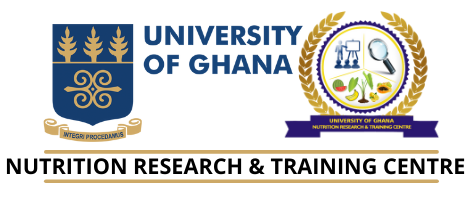Benedicta Asare is currently a Ph.D. Candidate at the Department of Human Nutrition and Dietetics, Kwame Nkrumah University of Science and Technology (KNUST) under the supervision of Prof. Reginald Adjetey Annan and Dr. Erick Herman Lutterodt. Her doctoral research aims to explore and understand the drivers of post-harvest losses of fruits and vegetables along the value chain and its linkage to the nutritional status of women and children. Her results are aimed to inform the development of tailored interventions to reduce food waste at the household level by educating and training mothers on preservation methods for fruits and vegetables to reduce anaemia among women and children. Benedicta completed her Bachelor’s in Dietetics and Master’s in Public Health at the University of Ghana (UG). She also has a certificate in Policy Planning and Development and Leadership and Management in Health from the University of Washington. Over the years, she has built her experience working within urban and rural communities on issues related to the health and nutrition of women and children. Benedicta’s career goal is to work with local and international organisations as an academic researcher to provide research-based interventions and policy formulation modalities in nutrition and public health to vulnerable groups in society, most especially women. Through this training, she hopes to acquire leadership and capacity building skills in women’s health, nutrition, and agriculture as well as identify conditions and best practices that will help foster successful partnerships between researchers, institutions, and policymakers. She also hopes to use this opportunity to connect and build networks with people working in the field of gender and women’s empowerment both locally and internationally for her future work. As a QEScholar, She will be collaborating with her Research Placement Partner (RPP), World Vision, Ghana, a Christian relief, development and advocacy organization dedicated to working with children, families and communities especially vulnerable people to overcome poverty and injustice. Her research objective will answer the question of “Gender inclusion strategies in mainstreaming nutrition into agriculture investments”. She hopes to use the opportunity to build networks with people working in the field of nutrition, child and maternal health both locally and internationally for future collaborations.
University of Ghana Nutrition Research and Training Center

